21 Features of Kidney Disease
Friday April 27, 2018 by Marianne Gutierrez 1,851 words
1. Dizziness
Kidney Disease is when the kidneys are not filtering blood thoroughly and symptoms such as anemia may occur. Apart from filtering out the waste and excess fluids from the body, the kidneys, triggered by Vitamin D, tell the bone marrow when to release a hormone called erythropoietin, which helps form red blood cells. When the kidneys are not operating optimally, a lack of red blood cells can cause anemia, which can produce many symptoms, including a lack of concentration and dizziness.
crystal light / shutterstock.com
2. Feeling Chilly
One of the symptoms of anemia is feeling cold. This is because the red blood cells carry oxygen to each of the cells so they can do their work. We keep warm by the cells in the body burning energy in the presence of oxygen. If there are not enough red blood cells carrying oxygen, then the body fuel (food) will not generate heat as well, and one symptom is feeling chilly.
leungchopan / shutterstock.com
3. A Metallic Taste & Bad Breath
A metallic taste in the mouth is more often caused by medications. However, bad breath can occur for a number of reasons — with poor oral hygiene being the most common. A recent controlled study has found that those with chronic kidney disease have lesions in the mouth, which are the cause of bad breath.
Rachata Teyparsit / shutterstock.com
4. Shortness of Breath
Shortness of breath in chronic kidney disease, or dyspnea, is poorly understood. Hemodialysis, which removes waste products and excess fluid does not significantly reduce breathlessness. Along with kidney disease, shortness of breath is also a result of congestive heart failure, lung disease, anemia, malnutrition, panic attacks, and muscle wasting. A swollen abdomen from fluid retention would restrict the movement of the diaphragm and therefore the lungs, causing a shortness of breath.
wavebreakmedia / shutterstock.com
5. Abdominal Swelling
As previously mentioned, the build up of fluid that accompanies kidney disease can accumulate in the abdomen. In kidney disease, one of the first signs of kidney problems is swelling, especially in the legs or face due to the poor elimination of wastes and fluids by the kidneys. The fluid retention over time will also accumulate in other areas of the body, including the abdomen. This produces a swollen or distended look and can make it difficult for you to feel comfortable in your clothes. Don’t just brush it off as unexplained weight gain, it’s best to get checked out by your doctor.
HENADZI PECHAN / shutterstock.com
6. Weight Loss
Conversely to the abdominal swelling, sudden weight loss is a symptom of kidney disease as well. The poor elimination of wastes and fluid can cause nausea and loss of appetite and therefore weight loss. If your clothes are feeling looser and looser, and you have not been exercising, you should see your Medical Practitioner to rule out kidney disease.
VGstockstudio / shutterstock.com
7. Fatigue
The knock on effect of the kidneys not operating optimally can cause tiredness and fatigue. This is probably due to the anemia and less red blood cells being produced. However, with the lymphatic system working hard to eliminate the toxins, and waste products circulating the body, the heart has to work harder and fatigue can be the result due to the extra load on the body. Another reason could be the role of a hormone leptin that is cleared by the kidneys that regulates food intake and energy.
fizkes / shutterstock.com
8. Poor Sleep
According to the National Kidney Foundation, kidney function is regulated by the sleep-wake cycle as it helps coordinate the kidneys’ work over the 24-hour period. The sleep-wake cycle is controlled by hormones (melatonin) that in turn are triggered by darkness. The body detoxes at night from about 3 until after you wake up. If sleep is poor, this affects the detoxing abilities of the kidneys, which can make kidney disease worse. Sleep can be helped by acting on the sleep signals produced by hormones and dark/light. Go to bed when first tired, which is about 9pm, and get up when you first awake, which can be 5 or 6am. If the signals from the hormone triggers are ignored, poor sleep is often the result, as well as headaches and other symptoms.
Sergey Mironov / shutterstock.com
9. Itchy Skin
Itchy skin, also known as pruritus, is a common symptom of kidney, liver disease, iron deficiency, thyroid, and cancers. The itchiness affects the whole body. However, itchy skin can be caused by many aspects, from dry skin to allergies. In kidney disease, the cause is due to the waste products remaining in the blood and lymphatic vessels longer than normal and not being thoroughly eliminated.
namtipStudio / shutterstock.com
10. Frequent Urination
Frequent urination can cause wear and tear on the kidneys as they work to get rid of waste and glucose. The cause is due to too much glucose from sugars and refined flour products being consumed. Glucose attracts water to itself, and a lot of glucose attracts more water that has to go through the kidney filtering processes first before elimination. This not only causes wear and tear on the kidneys but also causes more fluids and minerals to be excreted along with the glucose.
Sergey Edentod / shutterstock.com
11. Blood in Your Urine
Blood in your urine means there is an infection present either in your kidneys or bladder. If it is your kidneys, the cause is probably due to kidney stones, and you would also feel pain in your lower back. Antibiotics may be prescribed, and once the stones have passed, your kidney function should return to normal. However, the cause of stones in the kidneys is a lack of magnesium as magnesium breaks down stones. The lack of magnesium may be due to frequent urination flushing out essential minerals and a lack of magnesium in the diet.
lightspring / shutterstock.com
12. Foamy Urine
The urine is one of the first things that is tested when a patient is concerned about developing kidney disease. A urine test will check for protein in the urine, which will take on the appearance of foam. The foam is the protein albumin that was not filtered and put back into the blood due to the kidneys losing their efficiency. Foamy urine is a flag to get yourself tested for kidney disease.
Chamaiporn Naprom / shutterstock.com
13. Puffiness
When the kidneys are not filtering waste efficiently and not returning nutrients to the blood, water retention occurs. This is seen more in the peripheries of the body and in places were the skin is thin - puffy eyes, nose, fingers, ankles and feet. Puffy eyes, especially first thing in the morning and occurring long term, can be a sign of kidney (and heart) disease. Kidney disease is often overlooked because puffy eyes can be a symptom of many other conditions as well.
sruilk / shutterstock.com
14. Swollen Feet & Ankles
If kidney disease is suspected, a medical practitioner may look at the ankles and feet first before putting you through tests. The doctor will be looking at and pressing the ankles and feet for signs of water retention. The kidneys maintain homeostasis (balancing the water in the body) by use of the electrolytes (minerals that maintain an electrical charge) to attract water from the bloodstream or allow it to remain. When the electrolytes in the body are not in balance, kidney disease can result. Dehydration, medication, disease of the organs or poor diet can all affect the balance of electrolytes.
Toa55 / shutterstock.com
15. Appetite Is Poor
It is not fully understood why this happens, apart from blaming the buildup of toxins in the body. But, one symptom of anemia is a poor appetite, and if the kidneys can’t produce the hormone erythropoietin, which causes bone marrow to release red blood cells, then the inability to form red blood cells could also be the reason why those with kidney disease have poor appetites.
Leptin is a hormone that regulates food intake. Leptin concentrations are controlled by the kidneys. However, further investigations are needed to find out if the weight loss in chronic kidney disease is due to serum leptin concentrations. This is because serum concentrations are increased in chronic kidney disease, therefore the role of the kidneys in regulating leptin may be a cause of poor appetite.
Kleber Cordeiro / shutterstock.com
16. Muscle Cramps & Spasms
Muscle cramps and spams can occur due to poor filtering of the kidneys. Muscles need mineral salts and water for the ‘electricity’ to pass through the nerve, as well as calcium and magnesium which also helps the muscles move or relax. Mineral salts are found in rock salt, sea salt, good quality mineral rich water and from animal and vegetable foods. A lack of drinking water can cause this but also drinking too much water and other fluids can cause muscle cramps and spasms because important electrolytes are flushed out along with the excess water.
Kryvenok Anastasiia / shutterstock.com
17. Back Pain
The kidneys are situated in your lower back, slightly under the last rib and above the hip bones. Muscles in this area get notoriously tight and often, kidney pain is mistaken for muscle pain. If interventions by therapists to treat back pain is unsuccessful, then a visit to your medical practitioner is strongly advised.
Albina Glisic / shutterstock.com
18. Nausea
While a build up of wastes is the cause of feeling nauseous, it may also be due to not enough dialysis (which removes wastes), medication side-effects, and a lack of appetite bringing the the nutrients to aid health and digestion.
metamorworks / shutterstock.com
19. High Blood Pressure
Kidney disease and high blood pressure are linked together because the kidneys make the hormones that control blood pressure and maintain homeostasis (water balance). Healthy blood pressure can be helped by the consumption of mineral rich foods and the consumption of animal fats. Animal fats make the hormone helpers prostaglandins.
wavebreakmedia / shutterstock.com
20. Confusion
While we may all suffer with confusion at times, a continued episode of confusion can be a symptom of late-stage kidney disease. Fluid retention and toxins in the bloodstream due to poor kidney function may affect the brain and be the cause of delirium and confusion. However, confusion can also be a symptom of a bladder infection and not necessarily kidney disease, and therefore, a diagnosis by a medical professional is needed.
Maridav / shutterstock.com
21. Erectile Dysfunction in Men
Erectile dysfunction can be a symptom of other conditions, not just chronic kidney disease. Men are strongly advised to seek professional advice if they suffer with this. Erectile dysfunction will occur when kidney disease becomes chronic, but is due to many factors. One factor is the lack of hormones being produced by the kidneys. Others are anemia and a lack of all minerals including zinc.
ChameleonsEye / shutterstock.com

16 Warning Signs of Lupus to Watch Out For
1. Unexplained Fever Lupus can affect everyone differently and some may have …
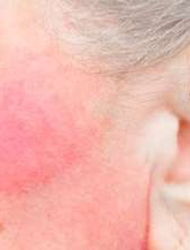
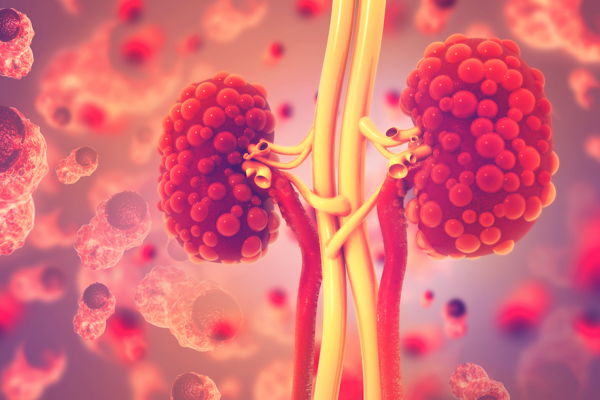
21 Features of Kidney Disease
1. Dizziness Kidney Disease is when the kidneys are not filtering blood …

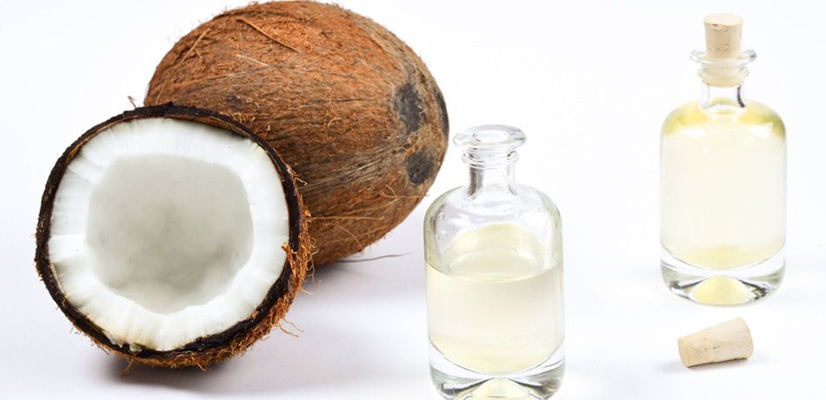
Top 10 Foods to Nourish Your Thyroid
Did you know that the food you eat can affect your thyroid health? Some foods …

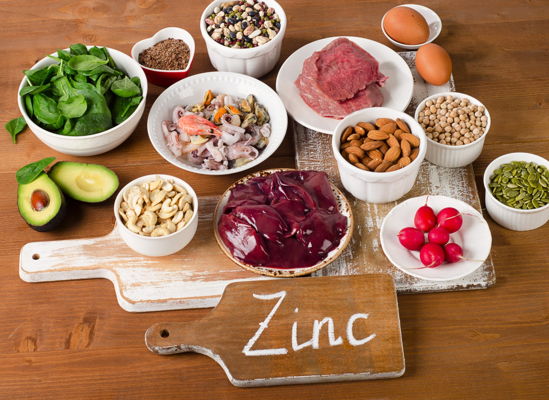
12 Facts About Your Borderline Personality …
1. It's Finally Classified As a Mental Illness Borderline Personality Disorder, …


12 Common Factors That Trigger Rosacea …
1. Makeup Some products used on the face and body or in the mouth ie: make-up, …

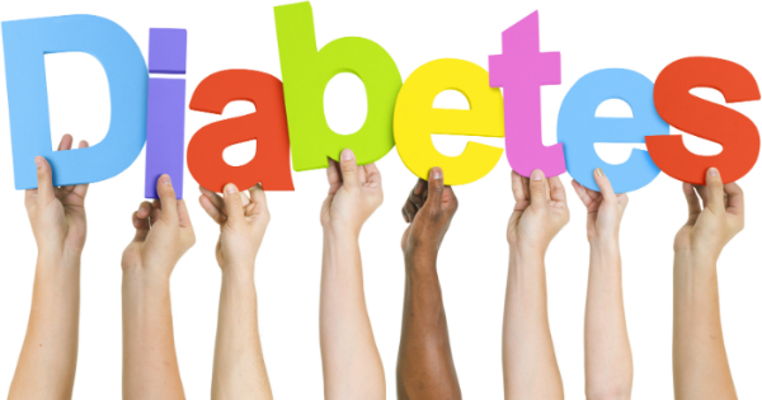
22 Common Symptoms of Type II Diabetes
1. Mood Changes Mood change is sometimes one of the first symptoms to suggest …
